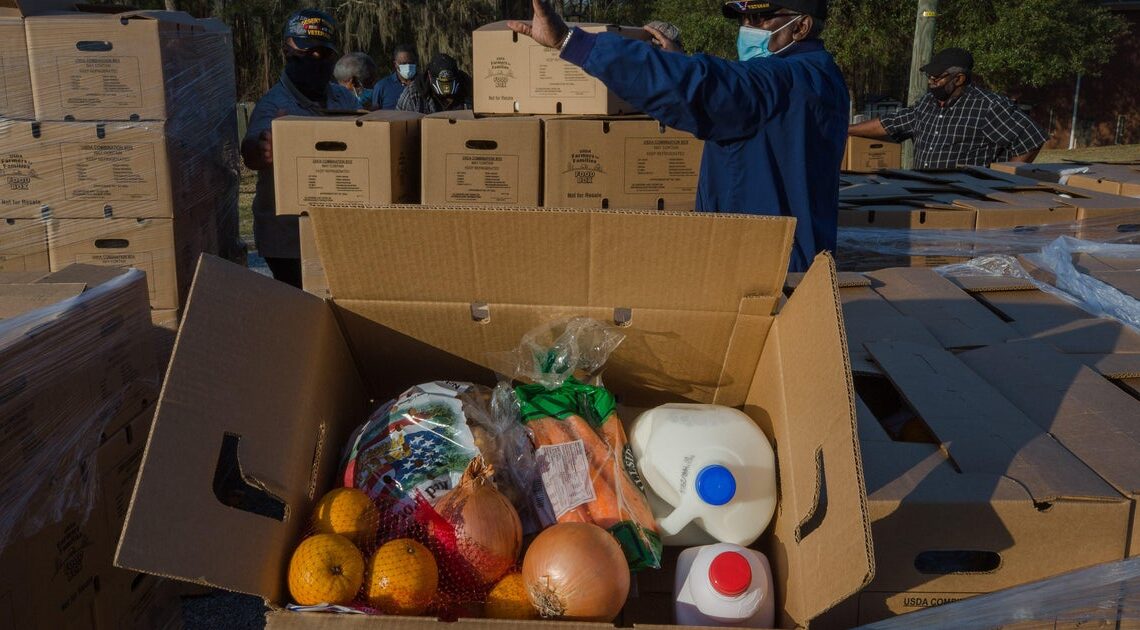
Trump wants to replace grocery aid for seniors with “MAHA food boxes”
7. May 2025
President Trump’s proposed budget for next year could include big changes for a small food aid program that helps low-income senior citizens supplement their diets. Under the plan, funding for the program — called the Commodity Supplemental Food Program (CSFP) — would be cut, and seniors instead would receive what the Trump administration is calling “MAHA food boxes” filled with products sourced directly from farmers.
The food boxes — whose name stems from Health and Human Services Secretary Robert F. Kennedy Jr.’s pledge to “Make America Healthy Again” — could eventually also be rolled out to either “supplant or complement current USDA programs,” the U.S. Department of Agriculture told CBS MoneyWatch in an email.
The agency didn’t disclose what other government programs could integrate use of the MAHA food boxes.
The USDA administers the Supplemental Nutrition Assistance Program, or SNAP, more commonly known as food stamps. The agency also oversees other food aid programs such as Women, Infants and Children, which is aimed at pregnant women and kids, as well as the National School Lunch program.
“Unlike the current approach using food banks, which provide those in need with shelf-stable foods that are high in sodium and other harmful ingredients, MAHA boxes would be filled with commodities sourced from domestic farmers and given directly to American households,” the Trump budget proposal notes.
The CSFP helps about 730,000 low-income seniors annually through its $389 million budget, according to the USDA. By comparison, the food-stamp program spent about $100 billion last year to provide assistance to 41 million Americans, according to the USDA.
“We have no details”
The CSFP is essential for low-income seniors who are struggling to put food on the table, said George Matysik, executive director of Share Food Program, a nonprofit in Philadelphia. He expressed concern about the Trump administration’s plans to replace the CSFP with food boxes, noting the logistical complexity of getting perishable food from farmers directly to older Americans.
Another question is whether the foods included in the food boxes would meet the needs of seniors who often need shelf-stable foods because many struggle to get to the store, Matysik said.
“What we do know is that the program that we currently have is working, and seniors have come to rely on us,” he said. “We have no details [about logistics of the MAHA food boxes], and this has been a continued challenge that we’ve had with this administration, where decisions are sort of made overnight.”
Share Food Program relies on $4.5 million in CSFP funding to provide 32-pound food boxes to more than 7,000 seniors in the Philadelphia region who earn less than roughly $23,000 per year. Matysik disagreed with the Trump administration’s claims that the program provides unhealthy foods to seniors, noting the boxes typically contain products such as canned vegetables, lean proteins and pastas.
“For seniors, a lot of times it can be hard to make it out to the grocery store — it can be hard to get those core items that folks need,” he added. “What we do at Share Food Program is take it directly to the doorstep of about 4,500 seniors, so not only are we providing that nutrition, but we’re making it easy on the seniors.”
The Trump budget proposal represents a wish list for the current administration, and it isn’t certain that funding for the CSFP would be cut.
But the plan comes amid a larger push by the Trump administration to reduce spending on similar programs, such as a decision in March to cut two federal programs that provided about $1 billion in funding to schools and food banks and instead have them source food directly from local farms, ranchers and producers.
The Kennedy effect
The MAHA food boxes would provide a twofold benefit, the USDA said in an email to CBS MoneyWatch.
“MAHA boxes would be more wholesome foods, and similar to the Farmers to Families Food Box, fresh foods,” the agency said. It added that “the most obvious” benefit would be “the removal of administrative middlemen from the distribution of food.”
The Farmers to Families Food Box, a pandemic food program that ran from May 2020 to May 2021, relied on more than 200 contractors to deliver millions of boxes to needy families, according to a 2021 analysis from the U.S. Government Accountability Office. The study found that the 21 biggest contractors were collectively awarded $3 billion to deliver the boxes.
MAHA, meanwhile, is part of a push by Kennedy to promote natural foods and alternative medicines. As head of HHS, he’s pressing the food industry to stop using synthetic food dyes and has pledged to remove processed foods from school lunches.
The USDA has signaled its openness to the MAHA platform, with Secretary Brooke Rollins saying she plans to approve a plan from Arkansas to ban the use of food stamps for purchasing sodas and candy. Anti-hunger advocates have said such restrictions can be stigmatizing for low-income Americans.
In the meantime, Matysik said he’s worried about the future of the CSFP program and the seniors who rely on it.
“Our seniors in particular are already hurting,” he said. “We’re hearing about cuts to the SNAP program. We’re seeing about cuts to Medicaid and Medicare. We’re really worried about our senior citizens in this funding environment from our federal government right now.”